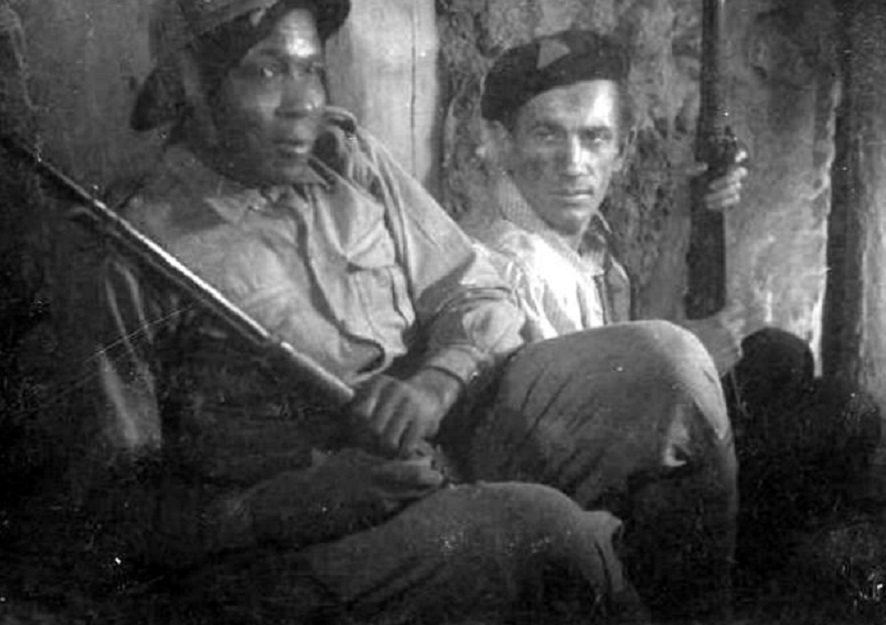When you think of World War II and African involvement in the world-shaping largely European conflict, you are reminded of the forced conscription of colonized Africans into European battalions meant to keep away Nazi and fascist aggression.
But August Agboola Browne stands in the oddest exception to this narrative. The Nigerian-born jazz musician and the story of how he suited up and took arms alongside defenders of Poland during the Warsaw Uprising of 1939 is an intriguing tale of alliance and perseverance.
Records show Browne was born in 1895 in Lagos, pre-independent Nigeria. He would leave the country of his birth with his father, a docker, to Britain. In 1922, Browne was to be found in Poland, via Germany, in the company of an entertainment troupe. We can surmise that life was livable for this Nigerian in Warsaw on the fringes of Eastern Europe because not only did he become a drummer and played at several joints in the city, he got married – twice.
Ela Grabinska-Raubusch, who works with the London-based Polish museum Sikorski Institute, recalled her Polish mother reminiscing about Browne’s life in Warsaw: “My mother said that he was very famous in Warsaw before the war since he was probably the only black person in the capital.”
This was the 1920s and 30s. The odds of Browne being the only Black man in Warsaw were not to be dismissed. Still, the fact that a Black African man who could have left Poland prior to the Nazi invasion, did not leave but stayed and fought for his adopted home is a tremendously astonishing piece of history.
Browne’s first wife was Zofia Pykowna, with whom he had two sons – Ryszard, born in 1928 and Aleksander, who was born in 1929. Unfortunately, the marriage broke and Zofia and the boys left Poland for Britain. He was remarried in the early 1950s to Olga Miechowicz and the two moved to Britain in 1956.
What he did exactly during the war cannot be independently verified apart from the claims he made to the Society of Fighters for Freedom and Democracy, a Polish association of veterans of World War II. Browne joined the association in 1949. In his application, he stated that he was part of the forces marshaled to defend Warsaw when Poland was invaded in 1939.
If he did fight in the war, it is strange how he survived at all because apart from the known dangers of war, he was a Black man and would stand out like a sore thumb for his enemies. But Browne’s application offered more substance on his involvement in 1944 during the Warsaw Uprising in which he said he was codenamed Ali.
He identified his unit leader as Corporal Aleksander Marciński, codenamed Łabędź, or Swan. Polish historians have confirmed the identity of Marciński and the ‘Iwo’ battalion he led in Śródmieście Południowe, or Southern Śródmieście. It is the same location Browne claimed to have fought in the Uprising. A veteran of the Polish resistance is also on record recalling seeing a “Black man” at the battalion headquarters during the Uprising.
When the war ended, Browne worked in Warsaw’s Department of Culture and Art from 1949 until he left for England. Somehow, a Nigerian man had survived one of the worst fascist military occupations in modern history in the whitest part of the world.
He had two daughters with second wife Olga in London. One of his daughters, Tatiana, today lives as a 62-year-old woman regretful that her father did not say more about his life in Poland. She told the BBC that her father was a “very quiet, very private, and quite distant” man who spoke perfect English and Polish.
Browne died in London in 1976, aged 81. He continued to play music for work until he could not any longer and retired behind the home piano in his advanced years.










